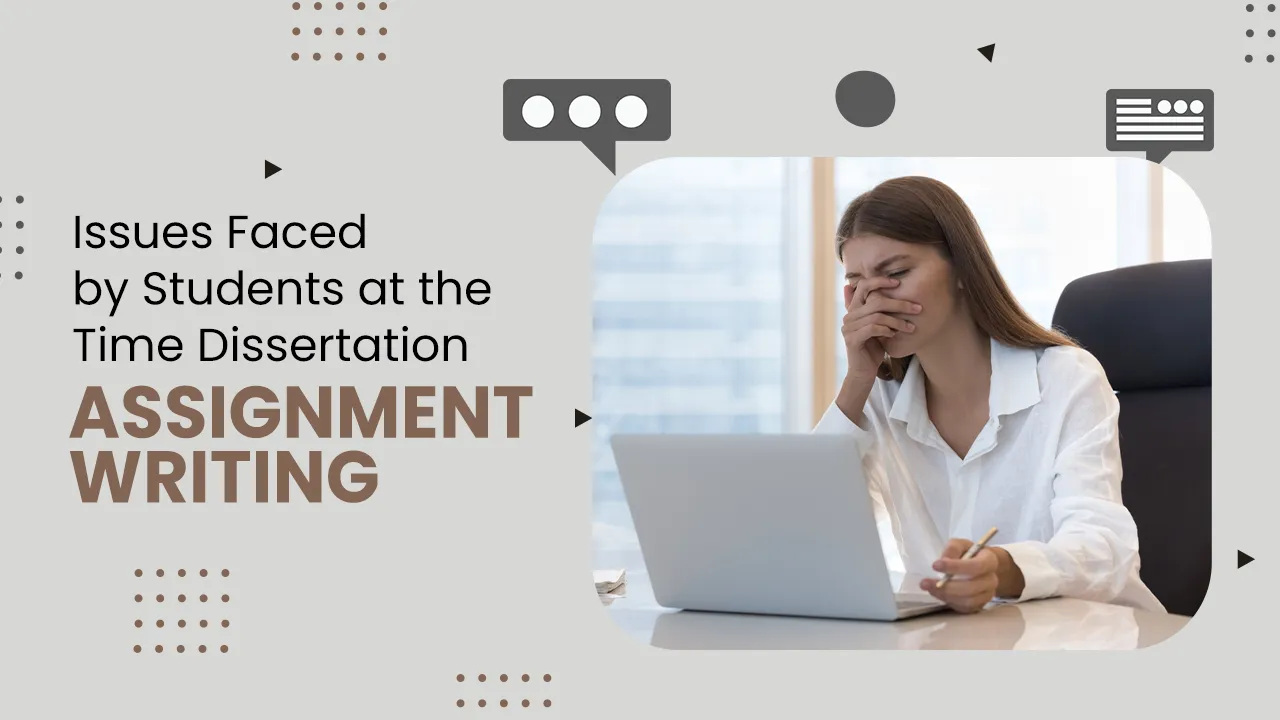Completing a dissertation is among the most challenging endeavors a student may face. It frequently presents a distinctive array of obstacles that can be intimidating, even for those who are most equipped. Many students find that seeking help with dissertations or consulting with a dissertation writer can provide valuable support, while resources like the Studybay or Chill and Study offer various dissertation helps to navigate these challenges.
What are the major problems students experience when writing dissertations, and how can they overcome them?
Identifying a Relevant and Original Topic
The basis of a good dissertation is selecting the right topic. Many students find it difficult to choose an original and pertinent topic. Often, the urge to add something fresh to the sector can be debilitating.
How to Overcome This Challenge:
- Narrow Down Broad Areas of Interest: Start with a broad area of interest then progressively focus it down. Reading current research publications can help identify areas of knowledge lacking in present understanding.
- Consult with Your Advisor: Use the knowledge of your advisor to confirm the viability of your selected issue and justify it.
- Make Advantage of Online Tools: Subject-specific databases, Google Scholar, and JSTOR can all inspire you and make sure your topic hasn’t been covered everywhere.
Academic adviser Dr. Alice Chen suggests, “Students often believe that they need to identify a groundbreaking topic. Still, it’s more crucial to concentrate on what actually fascinates you and discover a fresh approach inside that.
Lack of Time Management Skills
One of the hardest parts of dissertation writing is properly juggling time. Students who have many chapters to finish may undervalue the time needed for research, writing, and editing. Typical results are exhaustion and procrastination.
Jack Hill, a recent graduate, says, “I kept postponing some sections, believing I could finish them quickly later. I was under great pressure by the time I understood how little remained.”
Techniques for Optimizing Time:
- Create a Timeline: Divide the dissertation into smaller projects with particular dates.
- Use Project Management Tools: Track progress and remain organized using tools such as Trello, Notion, or Asana.
- Prioritize Tasks: Sort the parts according to most time consumption and start with them.
Getting Above Writer’s Block and Keeping Inspired
For students who aren’t accustomed to producing extensive academic writing, writer’s block can be a major roadblock. Motivation can also wane as the process drags on.
How to Stay Motivated:
- Set Mini-Goals: Divide the dissertation into sections—e.g., introduction, literature review—then concentrate on one at a time.
- Take Breaks: Short breaks help you avoid burnout and replenish your creative vitality.
- Connect with a Support Group: Joining a study group or online forum can provide motivation and shared insights.
- Visualize Success: Regularly picture the day you turn in your dissertation and the advantages it will offer to maintain strong motivation.
- Reward Progress: Treat yourself following important benchmarks to keep momentum and make the task more fun.
Dr. Brian Mason stresses the need of establishing reasonable benchmarks: “Breaking the dissertation into manageable chunks and celebrating small wins can help maintain momentum.”
Struggling with Research and Data Collection
Data collection is another challenging aspect, especially for students unfamiliar with research methodologies. Ensuring that data is both reliable and valid requires careful planning and execution.
Student Reflection: Emily White, a postgraduate student, says, “I struggled to decide between qualitative and quantitative methods, which delayed my data collection.”
Comparing Research Methodologies
| Aspect | Qualitative Research | Quantitative Research |
| Purpose | To understand underlying reasons and motivations | To quantify data and generalize results |
| Data Collection Methods | Interviews, focus groups, case studies | Surveys, experiments, structured observations |
| Data Type | Non-numeric, text-based | Numeric, statistical |
| Analysis | Thematic, narrative | Statistical, computational |
Analyzing Data and Interpreting Results
Drawing reasonable conclusions depends on accurate data interpretation. For students not familiar with qualitative analysis methods or statistical tools, this can provide a major obstacle. Misinterpretation can result in faulty conclusions, compromising the general caliber of the dissertation.
Expert Advice on Overcoming Data Analysis Challenges:
- Universities often have resources or departments that provide assistance with data analysis.
- Websites like Coursera and edX offer courses on various data analysis tools like SPSS, R, and NVivo.
- Many institutions offer workshops on research methods and data analysis, which can be incredibly valuable.
Coping with Feedback and Revisions
Receiving critical feedback on a dissertation can be disheartening, especially after investing significant time and effort. However, feedback is an essential part of refining the dissertation.
Tips for Handling Feedback:
- Stay Open-Minded: Embrace constructive criticism as a tool for improvement.
- Take Notes and Create an Action Plan: Organize feedback and create a to-do list for each point.
- Seek Clarification: Don’t hesitate to ask your advisor for clarification if any feedback seems unclear.
- Prioritize Feedback: Focus on addressing the most impactful suggestions first to improve your dissertation’s quality efficiently and avoid feeling overwhelmed.
Expert Tip: Dr. Laura Thompson advises, “View feedback as a learning opportunity. It’s not a reflection of your worth but a guide to make your work even better.”
Editing and Language Concerns
Especially for non-native English speakers, following formatting standards and writing in a formal academic tone might be challenging. Grammar, referencing, and formatting mistakes can all lower the caliber of the work.
How might one overcome problems with language and formatting?
- Use proofreading tools to find mistakes: Hemingway Editor, Turnitin, and Grammarly.
- Review guides for APA, MLA, or the approved style of your university.
- Hiring an editor might be a reasonable investment to guarantee polished, error-free writing.
- Share your work with peers to get helpful formatting advice and find mistakes missed by tools.
Juggling Other Work with Dissertations
Many students have to balance their dissertation work with other obligations such as employment, family, or other courses of study. An already difficult process can become even more stressful from this balancing act.
Working student Maria Hernandez notes, “I often had to sacrifice sleep or social time to keep up with my dissertation while working part-time.”
Strategies for Managing Several Responsibilities:
- Let your supervisor know about your other obligations. They might provide adaptable deadlines.
- List chores that can be put off or assigned to create additional writing time.
- Establish a support system. Ask family, friends, or colleagues for emotional and pragmatic support.
Clearly, writing a dissertation is a difficult path. Understanding and proactively tackling these shared challenges will help students not only get over these challenges but also generate a dissertation they will be pleased with. The dissertation writing process becomes more controllable and finally fulfilling with rigorous preparation, time management, and support seeking.
These professional thoughts and useful techniques can help students more boldly and successfully negotiate their dissertation path. Recall: the destination is worth the work even if the road may be difficult.

 Join Daily Trust WhatsApp Community For Quick Access To News and Happenings Around You.
Join Daily Trust WhatsApp Community For Quick Access To News and Happenings Around You.


